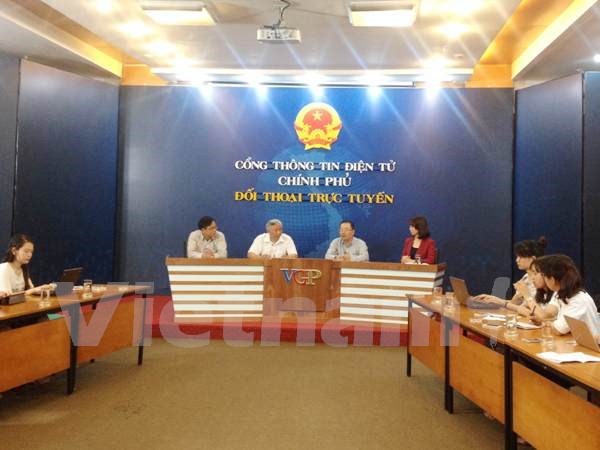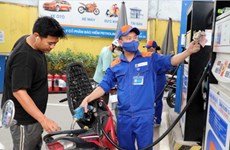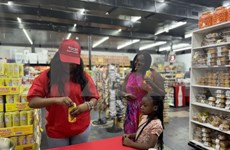Seminar discusses ways to optimise Vietnam-EAEU FTA
A seminar was held in Ho Chi Minh City on August 19 to discuss measures that domestic enterprises can apply to minimise impacts and optimise benefits from the Vietnam-EAEU FTA.
 Overview of the seminar. Photo: VNA
Overview of the seminar. Photo: VNAAccording to Duong Hoang Minh, Deputy Head of the European Market Department under the Ministry of Industry and Trade, the FTA is expected to become operational in early 2016.
Minh noted that the EAEU has committed to tax cuts to zero percent on nearly 90 percent of tariff lines, equivalent to 90 percent of the import value from Vietnam of the EAEU countries, which presents a great opportunity for Vietnamese products, especially seafood, apparel, footwear and farm produce.
For example, he said, over 71 percent of seafood product types will enjoy tariff exemption immediately after the agreement becomes effective.
However, Minh also warned that enterprises should carefully study the exemption and reduction of specific tariff lines as well as regulations on origin to maximise the cut’s benefits.
Deputy General Secretary of the Vietnam Association of Seafood Exporters and Producers Nguyen Hoai Nam held that seafood is among products set to receive special preferential treatment in terms of tax, domestic material ratio and origin regulations.
He noted that Vietnam’s seafood exports to the potential Russian and EAEU markets are currently modest at 110 million USD each year, accounting for only 1 percent of the sector’s total export value.
He added that without support from State agencies, enterprises will face difficulties in making full use of opportunities in the markets.
Nam also noted that one of the obstacles for Vietnamese enterprises is the ambiguous food safety and quarantine rules in the Russian market.
Statistics showed that 400 Vietnamese seafood producing facilities have been recognised by the European Union as meeting export standards but only 30 of them are allowed to ship seafood to the EAEU.
According to Minh, major traditional Vietnamese export markets such as the US, EU and Japan have different regulations on quality management from those in Russia and the EAEU.
During the seminar, participants also discuss the resilience of the steel sector against the competition of EAEU members, especially strong steel manufacturers of Russia, Belarus and Kazakhstan that offer competitive prices.
According to Nguyen Van Sua, Vice Chairman of the Vietnam Steel Association, Vietnamese steel firms should enhance their competitiveness by renovating their technology and building trademarks to secure the domestic market.VNA













